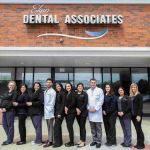How to Prevent Teeth from Chipping or Cracking
Maintaining strong, healthy teeth is crucial for both your appearance and overall well-being. However, even with the best oral hygiene practices, your teeth are still at risk of chipping or cracking. Whether it’s caused by an unexpected accident or a natural wear-and-tear process, a chipped or cracked tooth can lead to discomfort and costly dental treatments. In this article, we’ll explore practical steps and tips on how to prevent teeth from chipping or cracking, keeping your smile intact for years to come.
- Understanding Tooth Cracking
- Importance of Regular Dental Care
- Avoiding Bad Habits
- Protecting Your Teeth During Physical Activities
- Eating Right to Avoid Tooth Damage
- When to See a Dentist
1. Understanding Tooth Cracking
Teeth are incredibly strong, but they are not invincible. Cracks and chips in teeth can occur for a variety of reasons. They can result from a sudden injury, such as a fall or accident, or from ongoing pressure from habits like teeth grinding or chewing hard foods. It's important to understand the causes of tooth cracking so you can take proactive measures to prevent it. While some cracks are superficial and don't cause much discomfort, others can lead to more serious dental issues, including infections or tooth loss if left untreated.
1.1. Common Causes of Chipped or Cracked Teeth
Chipped teeth can happen due to many reasons, including direct trauma, aging, grinding, or biting on hard objects. Even small fractures can become larger problems over time if not addressed properly. Identifying and avoiding these causes can help preserve your teeth and avoid costly dental repairs.
2. Importance of Regular Dental Care
Preventing teeth from cracking begins with proper dental care. Regular visits to your dentist are key to detecting and addressing any oral health issues early on. Your dentist can spot signs of potential problems, such as weakened enamel or early signs of tooth damage, and provide you with preventive measures. Brushing and flossing your teeth twice daily, along with regular professional cleanings, can keep your teeth in optimal condition and prevent unnecessary damage.
2.1. Early Detection of Potential Issues
During routine dental checkups, your dentist can look for any weaknesses in your enamel or early signs of cracks and chips. Addressing these issues early can help prevent further damage and the need for more invasive treatments like crowns or fillings.
3. Avoiding Bad Habits
Certain habits can increase the risk of tooth damage. Chewing on hard objects like ice, pens, or even hard candy can put excessive stress on your teeth and cause them to crack. Similarly, grinding your teeth (a condition known as bruxism) can weaken tooth enamel over time and lead to cracks. Breaking these habits is essential for protecting your teeth and preventing damage.
3.1. The Importance of Breaking the Teeth Grinding Habit
If you grind your teeth, especially at night, consider using a mouth guard. A custom mouth guard made by your dentist can help reduce the pressure on your teeth and prevent wear-and-tear caused by grinding, significantly lowering the risk of cracks or chips.
4. Protecting Your Teeth During Physical Activities
Sports and physical activities can often lead to accidental injuries, including chipped or cracked teeth. Wearing a properly fitted mouth guard while playing contact sports or engaging in physical activities that pose a risk to your teeth is crucial. A mouth guard acts as a protective barrier, absorbing impact and reducing the chance of damage.
4.1. Mouth Guards for Sports
Even if you're not involved in high-contact sports, using a mouth guard can be beneficial during activities like cycling or running. It can also protect against potential accidents that might otherwise lead to chipped or cracked teeth.
5. Eating Right to Avoid Tooth Damage
The foods you eat can have a significant impact on the health of your teeth. Hard foods, like nuts and certain candies, can be challenging to your enamel and may cause cracks or chips. Additionally, sugary and acidic foods contribute to tooth decay, which weakens your teeth over time. It's important to eat a balanced diet that promotes strong teeth and avoid foods that can lead to tooth damage.
5.1. Soft Foods and Hydration
Incorporating softer foods into your diet and drinking plenty of water can help protect your teeth from damage. Foods rich in calcium and vitamin D, such as dairy products, leafy greens, and fortified foods, strengthen tooth enamel and make your teeth less prone to damage.
6. When to See a Dentist
If you suspect that your teeth are becoming weak or have experienced a crack or chip, it's essential to visit your dentist immediately. Addressing dental issues early can prevent the problem from worsening and causing more severe complications. Your dentist can provide restorative treatments, such as fillings, crowns, or bonding, to protect your teeth and restore their strength.
6.1. Dental Solutions for Cracked or Chipped Teeth
If a tooth is cracked or chipped, your dentist may recommend a dental bonding procedure or crown to restore its functionality and appearance. These treatments help reinforce the tooth, making it less vulnerable to further damage.
For more information on how to prevent your teeth from cracking or chipping, and to schedule a consultation, visit Dentistry Toothtruth today.
<>






 All Smile Dental Center3.0 (31 review)
All Smile Dental Center3.0 (31 review) Love Dental Arts5.0 (66 review)
Love Dental Arts5.0 (66 review) Dr. Michelle Green, Green Family Dental5.0 (32 review)
Dr. Michelle Green, Green Family Dental5.0 (32 review) Beth Weinstein, DDS5.0 (83 review)
Beth Weinstein, DDS5.0 (83 review) Carol Stream and Elgin Dental Associates4.0 (415 review)
Carol Stream and Elgin Dental Associates4.0 (415 review) Community Medical & Dental Center3.0 (37 review)
Community Medical & Dental Center3.0 (37 review) The Importance of Oral Health Education During Pregnancy for a Healthy Pregnancy
The Importance of Oral Health Education During Pregnancy for a Healthy Pregnancy Best Tips for Brushing Your Teeth Properly for Healthy Gums: Essential Techniques for Oral Health
Best Tips for Brushing Your Teeth Properly for Healthy Gums: Essential Techniques for Oral Health Why Skipping Dental Checkups Can Lead to Bigger Oral Health Problems
Why Skipping Dental Checkups Can Lead to Bigger Oral Health Problems Advantages of Porcelain Dental Restorations
Advantages of Porcelain Dental Restorations How Can Diabetes Cause Tooth and Gum Problems? Preventing and Managing Oral Health Issues
How Can Diabetes Cause Tooth and Gum Problems? Preventing and Managing Oral Health Issues Healthy Habits for Promoting Good Oral Health and Hygiene: Tips for a Healthy Smile
Healthy Habits for Promoting Good Oral Health and Hygiene: Tips for a Healthy Smile